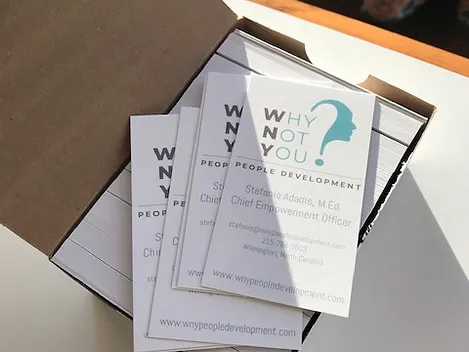I don’t quite remember when I started calling myself a writer, but at some point, the label just
stuck. Young Samoane spent her days hunched over 99-cent spiral notebooks, writing plays that
could rival Shakespeare in sparkly gel pen. By 12, I was scrawling poetry on online forums and
by 15, I had a blog where I totally did not post fanfiction about a certain 2010s boyband. I didn’t
realize it at the time, but putting pen to paper was the start of me learning the power of language
—a skill that would shape my future career as a grant writer and ultimately, a leader.
I don’t quite remember when I developed a hesitation to call myself a leader. Maybe it’s because
I’ve always associated leadership with the antithesis of my personality traits: someone whose
presence can easily command a room; someone who is comfortable having the final say;
someone who has managed and inspired a team of their own. I’ve never been a “Director” or
“Manager”, but I’ve always been a Writer. There are certainly collaborative, people-driven
elements of the writing process, but writing itself has been a solitary task for me. From pouring
over a tattered notebook to pecking away at a word processor, I could go hours without even
speaking to anyone. This has always scratched a special part of my introverted brain, but how on
Earth could I lead this way?
Selecting English as my major at UNCW was a one of the easiest decisions I’ve ever made. The
field of English is vaster than I could’ve ever imagined, and I had the opportunity to explore
different genres: literary criticism, technical, medical, editorial and finally – grant writing. For
me, grant writing is a highlight reel of what writing can do: it’s where storytelling meets
advocacy meets research meets data-driven outcomes meets…
Even as I garnered success as a grant writer, I struggled to broaden my definition of what
leadership truly looks like for me. Full transparency: The act of writing this week’s article has
given me the opportunity to come to many of these realizations and to other young professionals,
I urge you take the time to write—or talk through—the processes that you do day-to-day to
identify your own leadership strengths. Here’s what I learned:
- Writing itself is a form of leadership. Every grant I write is an opportunity to lead: to
guide a funder’s understanding of our organization’s needs, to persuade them to invest in
the work we’re doing, and to advocate for the people and programs that need support.
When awarded, grant funding can undoubtedly shape the future of the organization in
ways that are felt for years to come. This is exactly what those who set out to lead aim to
do with their legacy. - Anticipating our organization’s needs is a key part of the grant writing process. Just
as leaders regularly touch base with their team members to assess challenges, I spend
time with program managers and senior leaders to understand the ever-evolving needs of
our agency. With these conversations in my repertoire, I can better refine my grant
research to identify opportunities that align with our greatest needs and long-term
organizational goals. - As a grant writer, my organization looks to me. There is always a level of trust in me
to communicate the heart of our work to funders. Beyond that, I lead the grants process in
other ways. From coordinating internal review to the timely submission of our requests to
post-award tracking and reporting, I oversee the less writing-centric aspects of our grants
programming as well.
I leave you all with a challenge to think about your roles differently. You may not be ready to
consider yourself a leader just yet, but I know that you can find ways that you lead in your
everyday life. As you reflect, I hope that you remind yourself that leadership isn’t just titles or
visibility. A leader can be someone who uses their unique voice and skillset to make an impact.
So yes, I’m a Writer—but I’m also a Leader. And I’ve learned that those two identities are more
complementary than they are mutually exclusive.



